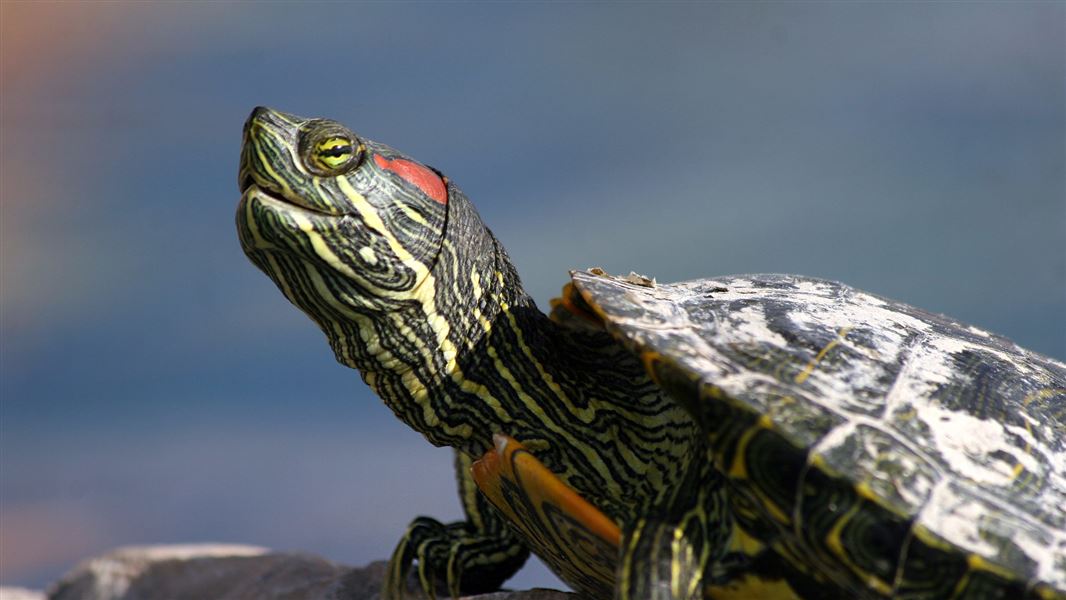Date: 02 February 2024
DOC Ranger Matthew Brady says a red-eared slider turtle is a pet for life.
“Many people don’t realise they can grow to the size of a dinner plate and potentially live for up to 50 years, so the turtle you buy for your kids could still be alive when they’re in their 50s.
“Turtles need facilities to accommodate their size and habitat requirements, which means a large, heated aquarium or their own secure outdoor pond. The ongoing costs of caring for these turtles are high and require a committed owner.”
Matthew says there are no native freshwater turtles in New Zealand, so any turtle seen in the wild is an escaped exotic species.
“Red-eared slider turtles are invasive and damage freshwater ecosystems, eating a significant amount of plants, fish, and birds over their long lives. Females also produce hundreds of eggs, so turtles can become a big problem relatively quickly.
“We have breeding populations of turtles in the wild, but they currently only produce males. However, the sex of turtle offspring is linked to temperature, so a warmer climate could result in female offspring, and create a self-sustaining wild population.
“Our native fish and other species are in enough trouble without pressure from this invasive species.”
If you see a turtle in the wild, take a photo and record it on iNaturalist or the Find-A-Pest app. This information will help DOC and regional councils find out how many turtles are currently living in our waterways and wetlands, and guide our work to manage them.
If the turtle looks sick, injured or in need of urgent care, contact your local vet or SPCA. If it is safe to do so, put the turtle in a container with wet towels and keep it at home in a cool place until advised what to do next by the SPCA or vet. Take care as turtles can bite.
If you’re struggling to look after your pet turtle, contact the SPCA to find out how they could support you.
Background information
Red-eared slider turtles are native to North America. They can be kept as pets in Aotearoa New Zealand, but are banned from sale in Auckland.
They have an olive green to brown shell patterned with yellow spots or stripes, and a distinctive red stripe behind their eyes. The ‘slider’ part of their name comes from their ability to slide into the water quickly from rocks and logs.
Turtle eggs have to remain at 22–33°C for 55–80 days to hatch into live young. At cooler temperatures, only male turtles are produced. In warmer parts of Aotearoa, turtle eggs can hatch but do not produce female young.
As climate change brings increased temperatures, there is concern that both male and female young will hatch and allow a self-sustaining population to establish in the wild.
Red-eared sliders are listed by the IUCN as one of the 100 worst invasive species. They are regarded as invasive because they damage freshwater ecosystems. In Aotearoa New Zealand, they eat fish, plants, aquatic insects, koura, and small birds including ducklings. Red-eared sliders can also displace wetland bird nesting sites. Their presence in a waterway can reduce water quality.
Releasing turtles into the wild is an offence under the Biosecurity Act and the Animal Welfare Act, and in some regions would breach Regional Pest Management Plans. You could face a fine of $5,000.
Contact
For media enquiries contact:
Email: media@doc.govt.nz
